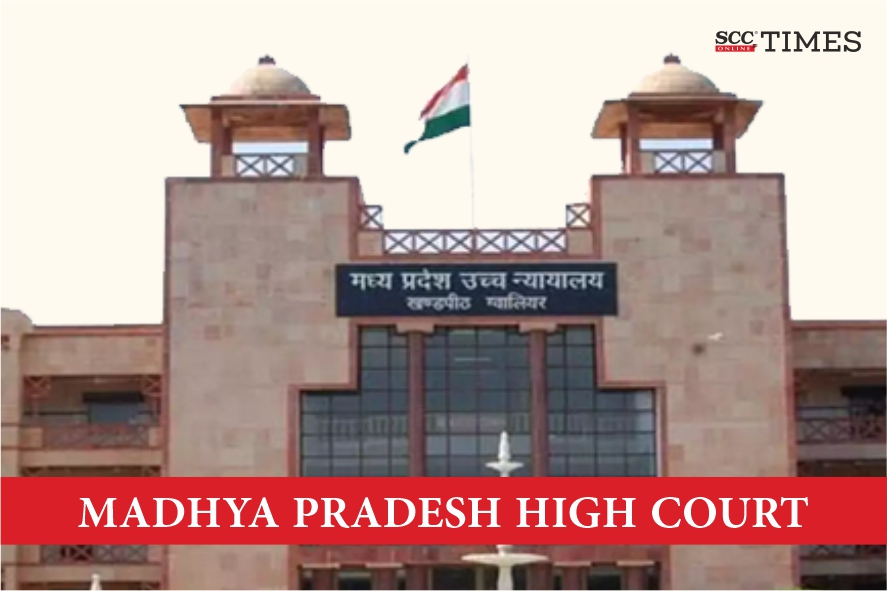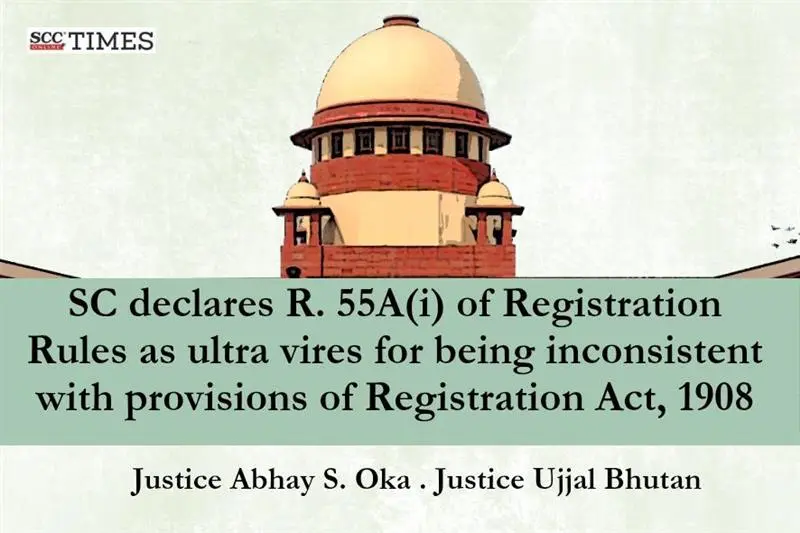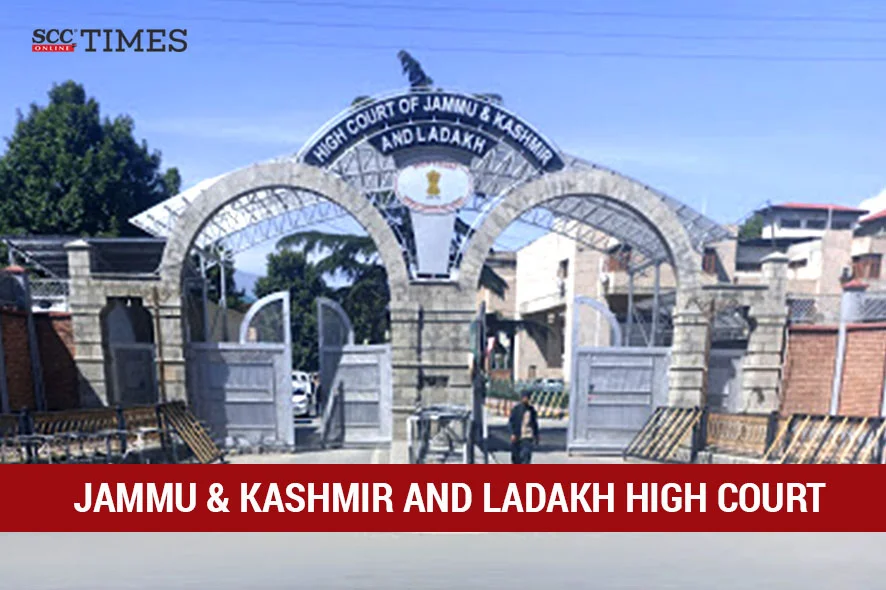Penal Code, 1860 — Ss. 302/149 — Murder — Eyewitness: In this case, related witnesses clearly established case against appellant-accused. Mere fact that deceased was brother of informant PW 11, and PW 13 is husband of the niece of deceased does not impeach their evidence in any manner. Mere fact that witness is related does not lead to inference that such witness is an interested witness. Motive of retaliation by accused against deceased, was established and medical evidence was also corroborated by ocular evidence, hence, conviction was confirmed. [Shio Shankar Dubey v. State of Bihar, (2019) 6 SCC 501]
P enal Code, 1860 — Ss. 166, 167 and 201 to 204: In this case while determining the maintainability of complaint for giving of false information/intentional omission to give information/destruction of evidence to screen accused, etc. on basis of adverse remarks made by trial court in its order, it was held that the order containing such adverse remarks being sub judice, appeal having been filed there against, said complaint, to abide by result of said appeal. [Hanumant Dinkar Arjun v. Suresh R. Andhare, (2019) 6 SCC 510]
Consumer Protection — Services — Medical practitioners/services — Varying approaches to treatment available — Choice amongst: While adopting a course of treatment, the medical professional must ensure that it is not unreasonable. The threshold to prove unreasonableness is set with due regard to the risks associated with medical treatment and the conditions under which medical professionals function. This is to avoid a situation where doctors resort to “defensive medicine” to avoid claims of negligence, often to the detriment of the patient. Hence, in a specific case where unreasonableness in professional conduct has been proven with regard to the circumstances of that case, a professional cannot escape liability for medical evidence merely by relying on a body of professional opinion. [Nand Kishore Prasad v. Mohib Hamidi, (2019) 6 SCC 512]
Consumer Protection — Consumer/Consumer Dispute/Locus Standi — Class Action — Maintainability of: All persons represented in a consumer class action need not have the same cause of action so long as they have common interest or common grievance to maintain a class action under the Consumer Protection Act, this being the same principle as is applicable in respect of Or. 1 R. 8 CPC. [Anjum Hussain v. Intellicity Business Park (P) Ltd., (2019) 6 SCC 519]
Service Law — Absorption — Absorption in deputee/transferee department: In this case, appellants were appointed to post of newly created Minority Welfare Officers on deputation for period of two years or till further orders whichever was earlier, after due selection process. Appellants were not repatriated to parent department even after two years. The Supreme Court reiterated that employee sent on deputation has no right to claim absorption. However, in instant case even though as per appointment letter appellants were appointed on deputation but actually said appointment was not on deputation but by transfer of service and that too much prior to coming into force of U.P. Minority Welfare Department Gazetted Officers Service Rules, 2001. Moreover, in absence of any evidence to show that appellants were appointed only against temporary post created for a period of two years, it cannot be held that they were appointed only against temporary posts for period of only two years. Appellants having been appointed prior to enforcement of 2001 Rules, entitled to absorption in Minority Welfare Department. Employees who had retired entitled to retiral benefits and pensions as admissible to Minority Welfare Officers. [Raja Singh v. State of U.P., (2019) 6 SCC 528]
Penal Code, 1860 — Ss. 302/34 and 307/34 — Murder trial: In this case, there was death of one due to shooting and injuries to others and alleged main assailant (appellant) was alone sought to be made responsible, all others stood acquitted. Regarding identification of accused at night/darkness, there was no evidence as to any source of light. Medical evidence also not established whether fatal wounds were caused by double-barrelled or single-barrelled gun. Hence, it was held that appellant alone could not be held responsible for fatal firearm wounds on body of deceased and conviction was reversed. [Ashoksinh Jayendrasinh v. State of Gujarat, (2019) 6 SCC 535]
Rent Control and Eviction — User/Non-user/Misuser/Non-occupation of premises — Non-user of tenanted premises — Eviction of tenant on ground of: For eviction of tenant on ground of non-user of tenanted premises by him, it must be established that premises were let out for a particular purpose, there was non-user of premises for the said purpose, non-user was without reasonable cause and for a continuous period of six months immediately preceding date of suit. [Nilesh Laxmichand v. Shantaben Purushottam Kakad, (2019) 6 SCC 542]
Specific Relief Act, 1963 — Ss. 34 and 42 — Suit for declaration of decree in earlier suit as void — Decree if a collusive one — Determination of: In this case Trial court and appellate Court and High Court in second appeal concluded that judgment and decree passed in earlier Civil Suit No. 18 of 1983 was illegal and did not bind plaintiffs (respondents herein), holding it a collusive decree between plaintiffs and defendants in said suit. Affirming concurrent findings of court below, interference was declined. [Jaswant Singh v. Jaspal Singh, (2019) 6 SCC 552]
Contract and Specific Relief — Auctions/Tenders — Formation of contract by auction: Right to participate in auction, in this case a draw of lots for allotment of flat, does not create any concluded contract or contractual entitlement, and hence did not create any entitlement to allotment of flat, much less to allotment of flat at a specified price. Furthermore, provider of flats in present case being a public authority could not have been compelled to act dehors the applicable norms by NCDRC. [U.P. Housing & Development Board v. Ramesh Chandra Agarwal, (2019) 6 SCC 554]
Constitution of India — Pt. IX and Art. 243-C — Chairperson/Pramukh of Little Andaman Panchayat Samiti: Procedure for election is different from procedure for removal. Persons who may participate in election and removal, clarified. Even if for election of Pramukh, the Constitution as well as State law mandate participation of directly elected members, there is no such stipulation in respect of procedure of no-confidence motion in the Constitution. But State laws i.e. the Andaman and Nicobar Islands (Panchayats) Regulation, 1994 and the Andaman and Nicobar Islands (Panchayat Administration) Rules, 1997 are not silent and expressly stipulate two-thirds of “total membership” as quorum of special meeting and expressly permits “all” members of Panchayat Samiti to participate in discussion and vote in motion of no-confidence. [Seema Sarkar v. Panchayat Samiti, (2019) 6 SCC 559]
Civil Procedure Code, 1908 — Or. 43 R. 1(d) and Or. 9 R. 13: In this case, Family Court, had declined to condone delay in filing application by R-2 for setting aside ex parte decree for dissolution of marriage of R-1 husband with R-2. High Court without addressing the issue of delay, disposed of appeal and directed R-2 (first wife) to live with R-1, even though R-1 was now married to appellant. The Supreme Court held that the impugned orders passed without hearing appellant and not issuing any notice of appeal to appellant yet giving directions, not capable of being carried out. Morever, necessity of such substantive directions in an appeal between respondents inter se involving procedural law was questionable. Thus, said directions were without jurisdiction and legally unsustainable and hence set aside. Case remanded to High Court for deciding miscellaneous appeal afresh on merits in accordance with law after impleading appellant as a party respondent and other directions also issued. [Karuna Kansal v. Hemant Kansal, (2019) 6 SCC 581]
Companies Act, 2013 — S. 130 r/w Ss. 211/212 and 241/242 — Recasting and reopening of accounts — Permissibility of: Considering use of the word “OR” in S. 130, if either of the conditions precedent is satisfied, NCLT would be justified in passing order under S. 130 of the Act. Further, the three provisions i.e. Ss. 130, 211/212 and 241/242 are required to be considered conjointly and thus observations made while passing order under Ss. 241/242 can be said to be relevant observations for passing order under S. 130. [Hari Sankaran v. Union of India, (2019) 6 SCC 584]
Citizens, Migrants and Aliens — National Register of Citizens for the State of Assam — Preparation and publication procedure under Paras 2 to 8 of Schedule to 2003 Rules made under S. 18, Citizenship Act, 1955 — Right of appeal under Para 8: Para 8 right of appeal to Foreigners Tribunal, held, not available to persons in respect of whom Foreigners Tribunal has already declared their citizenship status as Indian Nationals or Foreigners under the Foreigners (Tribunals) Order, 1964 issued under S. 3, Foreigners Act, 1946. Right of appeal under Para 8 is only available to persons whose citizenship status has not been declared by Foreigners Tribunal. Foreigners Tribunal cannot re-determine citizenship status. Bar of res judicata would apply as Foreigners Tribunal is a quasi-judicial body. Opinion of Foreigners Tribunal as to citizenship status or order passed by Registering Authority based on opinion of Foreigners Tribunal as to citizenship status can be challenged by way of writ proceedings under Arts. 226 and 32 of the Constitution. Expression “competent authority” in Para 3(2) of Schedule to 2003 Rules made under Citizenship Act, means Foreigners Tribunal under 1964 Order made under Foreigners Act. Foreigners Act and Citizenship Act have to read harmoniously as they are inter-related and are sister enactments. [Abdul Kuddus v. Union of India, (2019) 6 SCC 604]
Constitution of India — Arts. 32 and 142 and Arts. 19 and 21 — Maintainability: In this case, Magistrate directed 13/14 days remand of petitioner’s husband for his posts in social media. Exercising power under Arts. 142 and 32, petitioner’s husband directed to be released on bail to satisfaction of conditions of Magistrate. Technical ground that habeas corpus is not maintainable against remand order of Magistrate, held not tenable in a glaring case of deprivation of liberty as in present case. [Jagisha Arora v. State of U.P., (2019) 6 SCC 619]
Civil Procedure Code, 1908 — Or. 2 R. 2 and Or. 7 R. 1 — Object of Or. 2 R. 2: Cause of action in both suits must in substance be identical to attract bar of subsequent suit in respect of any of reliefs pertaining to same cause of action which had been omitted in previous suit. In view of Or. 2 R. 3 it is open to plaintiff to combine causes of action but if there is more than one cause of action, Or. 2 R. 2 will not apply. [Pramod Kumar v. Zalak Singh, (2019) 6 SCC 621]
Criminal Procedure Code, 1973 — S. 319 — Power to proceed against other persons appearing to be guilty of offence — Exercise of: As certain aspects were not clear from decided cases, including a five-Judge Bench decision, following substantial questions of law referred to larger Bench of appropriate strength: (i) Whether trial court has power under S. 319 CrPC for summoning additional accused, when trial with respect to other co-accused has ended and judgment of conviction rendered on same date before pronouncing summoning order; (ii) Whether trial court has power under S. 319 CrPC for summoning additional accused, when trial in respect of certain other absconding accused (whose presence is subsequently secured) is ongoing/ pending, having been bifurcated from main trial; and (iii) What are the guidelines that competent court must follow, while exercising power under S. 319 CrPC. [Sukhpal Singh Khaira v. State of Punjab, (2019) 6 SCC 638]
Service Law — Promotion — Criteria/Eligibility — Deemed promotion — Relevance for promotion: An employee who was assigned deemed date of promotion as per the Maharashtra Civil Service (Regulation of Seniority) Rules, 1982 but has not actually worked for three years continuously on promotional post, can not be said to have completed continuous service of not less than three years in feeder cadre as per stipulated requirement under the Maharashtra Zilla Parishads District Services (Recruitment) Rules, 1967. Hence, as Appendix IX of Recruitment Rules prescribed “continuous service of not less than three years” in grade of Office Superintendent for promotion to post of Section Officer, it was held that High Court erred in finding R-3 eligible for promotion. [Girish Kumar v. State of Maharashtra, (2019) 6 SCC 647]
Customs — Valuation: Rejection of the transaction value declared by importer without giving cogent and good reasons in terms of S. 14(1) of the Customs Act, 1962 and R. 12 of the Customs Valuation (Determination of Value of Imported Goods) Rules, 2007, not permissible. Enquiry prior to such rejection and giving of valid reasons for doing so by proper officer, is necessary. Requirement of giving reasons, both at the preliminary as well as the second stage of enquiry i.e. when doubting the truth or accuracy of the value declared, mandatory in nature. [Century Metal Recycling (P) Ltd. v. Union of India, (2019) 6 SCC 655]
Service Law — Transfer of Employee/Service: When transfer of employee was found to be mala fide and with oblique motive, employee concerned who retired during pendency of challenge, held, can still claim retiral benefits in light of order in his favour, [Union of India v. S. Maadasamy, (2019) 6 SCC 674]
Civil Procedure Code, 1908 — S. 100 — Second appeal: Second appeal would be entertained if High Court is satisfied that case involves substantial question of law. High Court has to frame substantial question of law and then direct issuance of notice to respondent of memo of appeal along with substantial question of law so framed. Jurisdiction of High Court confined only to such substantial question of law. Additional substantial question of law can be framed while hearing appeal by assigning reasons therefore. High Court does not have jurisdiction to frame substantial question of law while delivering final judgment. It is framing of substantial question of law which empowers High Court to decide second appeal finally. Where substantial question of law not framed at the time of admission, High Court does not get jurisdiction to decide second appeal for want of substantial question of law. Respondent in second appeal has right to raise objection that substantial question of law does not arise in the appeal. He is required only to reply substantial question of law and not beyond that. [Arulmighu Nellukadai Mariamman Tirukkoil v. Tamilarasi, (2019) 6 SCC 686]











